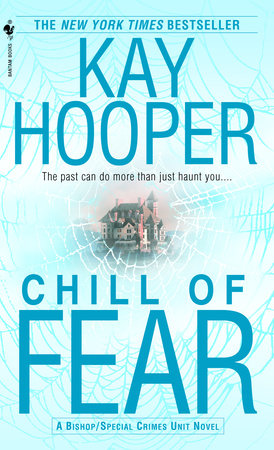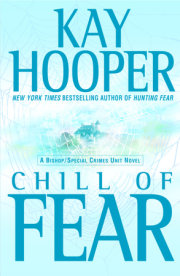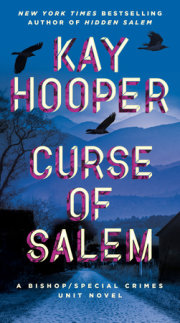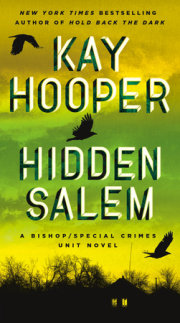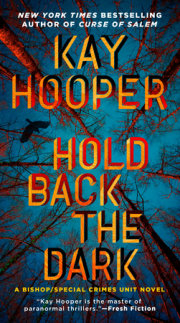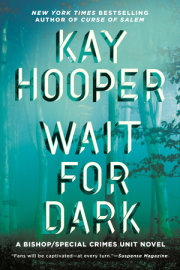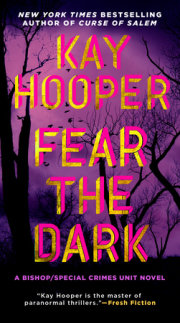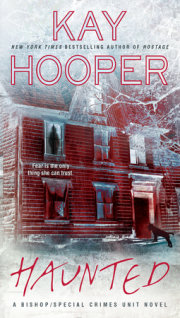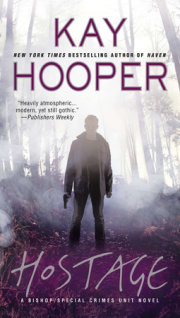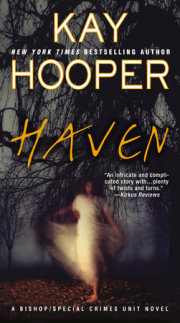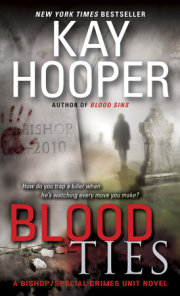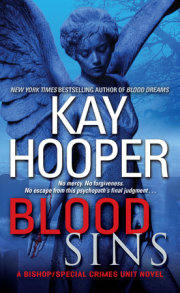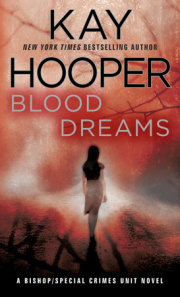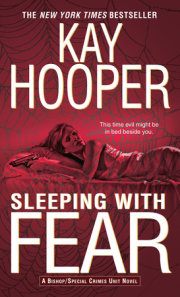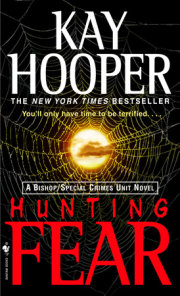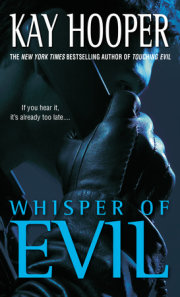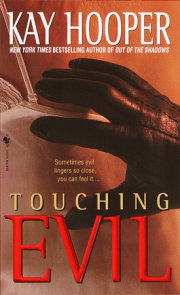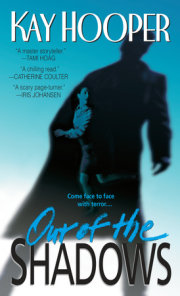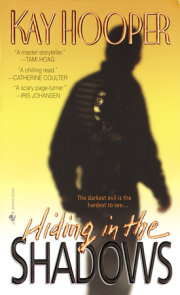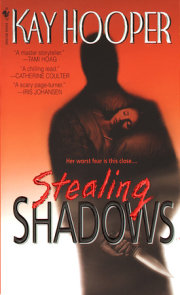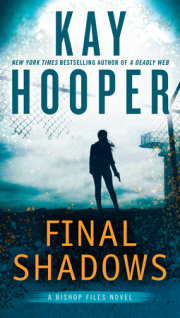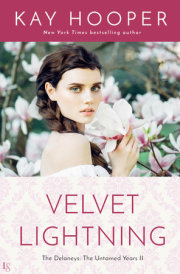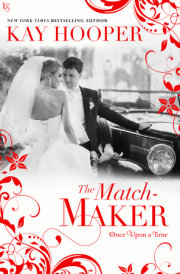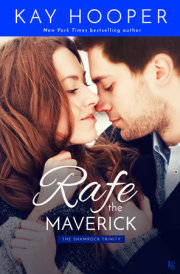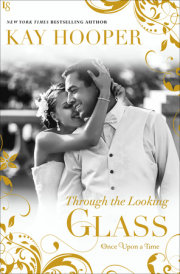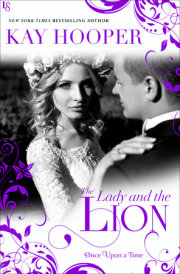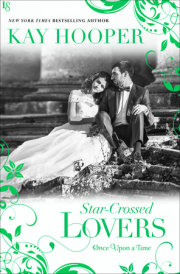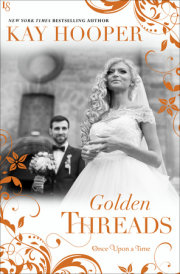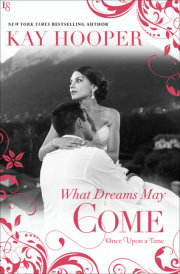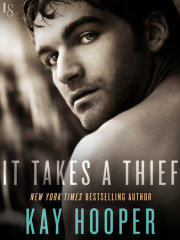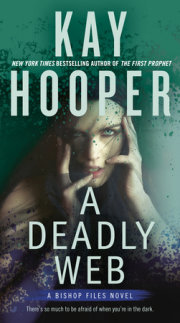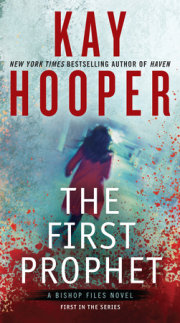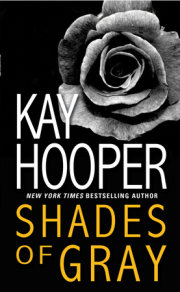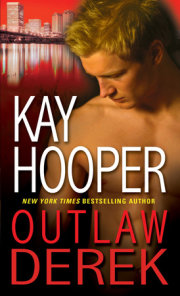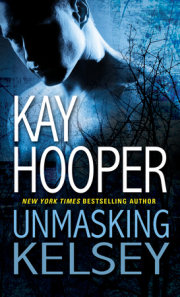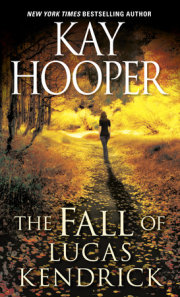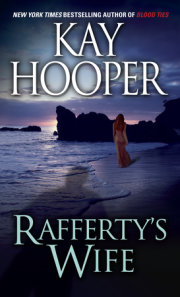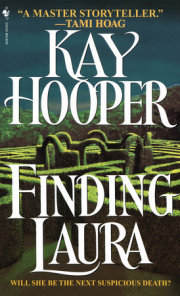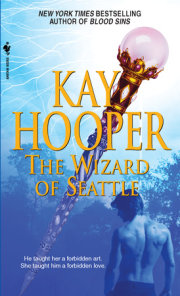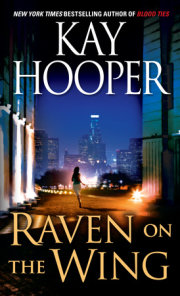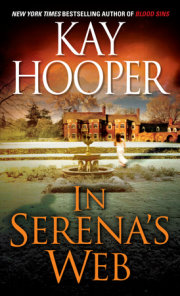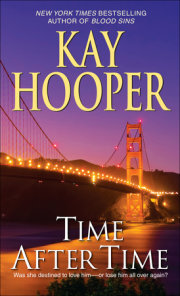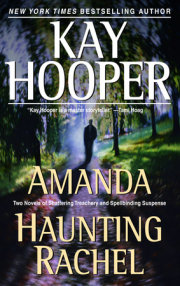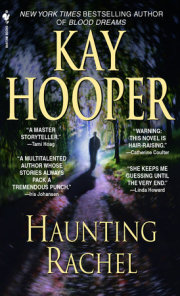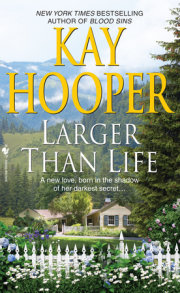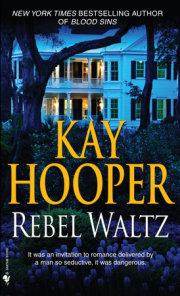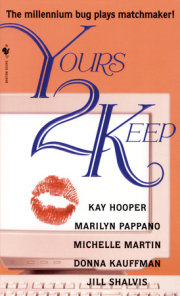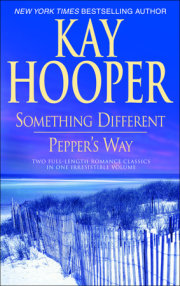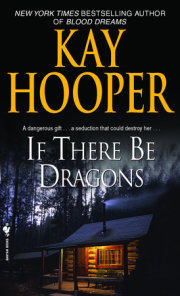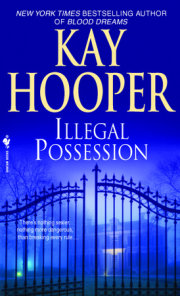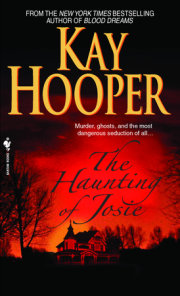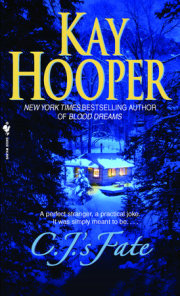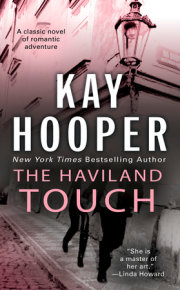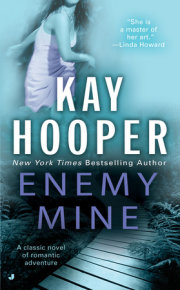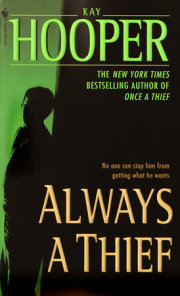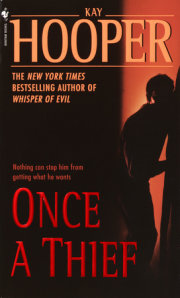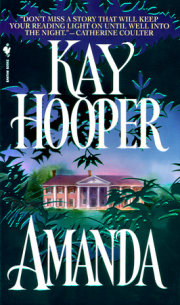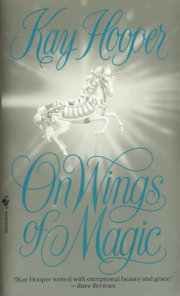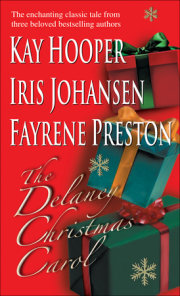Chapter One
Present day
Nightmares again?"
Diana Brisco slipped her cold hands into the front pockets of her smock and frowned at him. "What makes you ask?"
"That." He nodded at the canvas on its easel in front of her, a canvas with a dark background and bright, harsh slashes of color in the foreground.
She joined him in staring at the canvas, and finally shrugged. "No, no nightmares." For once, at least. "Just in a mood, I guess."
"A dark mood."
"You told us to paint what we felt," she said defensively. "I did that."
He smiled, the expression lending his already angelic features such beauty that she unconsciously caught her breath.
"Yes, you did. And quite powerfully. I'm not worried about your work, Diana. It's superb, as usual. I'm concerned about you."
She mentally shook off the almost mesmerizing effect of his physical presence and ignored what she suspected was a pat-the-pupil-on-the-head compliment, saying, "I'm fine. I didn't sleep well, but not because of nightmares. Just because . . ." She shrugged again, unwilling to admit that she had been up half the night staring through her bedroom window, out over the dark valley. She had spent far too many nights that way since arriving in Leisure.
Looking for . . . something. God only knew what, because she certainly didn't.
Gently, but also matter-of-factly, he said, "Even if this workshop was designed for self-expression rather than therapy, I'd be offering the same advice, Diana. Once we're done here, get out of The Lodge for a while. Go for a walk, or a ride, or a swim. Sit out in one of the gardens with a book."
"In other words, stop thinking about myself so much."
"Stop
thinking. For a while."
"Okay. Sure. Thanks." Diana knew she sounded brusque and wanted to apologize for it. He was only doing what he was supposed to do, after all, and probably had no idea that she'd heard it all before. But before she could form the words, he merely smiled and moved on to the next of his dozen or so "students" here in the bright, open space of the hotel's conservatory.
Diana kept her hands in the pockets of the paint-stained smock and frowned at her painting.
Superb, huh? Yeah, right. To her eye, it looked more like the finger painting of a highly untalented six-year-old.
But, of course, quality was hardly the point. Talent was hardly the point.
Figuring out what was going on in her screwed-up mind was the point.
She took her gaze off the painting and watched as Beau Rafferty moved among his students. An artist of his caliber teaching this sort of workshop had struck her as extremely odd at first, but after a week of classes she had come to realize that he had a genuine gift not only for teaching, but also for reaching and helping troubled people.
Other people, at least. She could already see changes in most of the others participating in this workshop. Strained faces had begun to relax, smiles had appeared to replace frowns or haunted anxiety. She had even seen a few of them out enjoying some of the activities The Lodge had to offer.
But not Diana. Oh, no. Diana was still having nightmares when she could sleep at all, she couldn't remember the last time she had felt relaxed, and none of the myriad sports or recreational facilities here held the least appeal for her. And despite Rafferty's undoubted genius and ability to teach, she didn't believe that her rudimentary artistic skills had improved either.
In fact, this whole thing was probably just one more waste of her time and her father's money.
Diana looked back at her painting and hesitated for a moment before picking up her brush and adding one small streak of scarlet near the lower left corner. That finished it, she decided. She had no idea what it was or what it was supposed to represent to her, but it was finished.
She began cleaning her brushes automatically, trying to concentrate on the task and not think.
But, of course, that was part of her problem, the short attention span, these scattered, random thoughts and ideas flitting constantly through her mind, usually so fast they left her confused and disoriented at least half the time. Like bits and pieces of overheard conversations, the words and phrases came and went almost continually.
No focus, that's what the doctors said. They were sure she didn't have attention deficit disorder, despite having been medicated for that at least twice in her life; no, all the doctors and all the tests had determined that despite "somewhat elevated" levels of electrical activity, her problem wasn't physical or chemical, wasn't something in her brain--but something in her mind.
So far, none of them had been able to suggest a successful way of figuring out what that
something was. And just about every conceivable means had been tried. The traditional couch and shrink. Hypnosis. Conscious regression, since no one had been able to hypnotize her to attempt the unconscious variety. Group therapy. Massage therapy. Various other kinds of therapy, both traditional and New Age. Including, now, painting, under the tutelage of an honest-to-God artistic genius, in yet another attempt to tap in to her inner Diana and ask what the hell was wrong with her.
One of her current doctors had suggested she try this, and Diana could only wonder if he was getting kickbacks for every referral.
Her father had spared no expense in trying to help his troubled only child, openly afraid that she might, as so many others had done, escape into alcohol or drugs or, worse, give up and commit suicide.
But Diana had never been tempted by the chemical forgetfulness that could be found in "recreational" drugs. In fact, she disliked losing control, a trait that only exacerbated her problem; the harder she tried to concentrate and focus, the more scattered her thoughts became. And the failure to control them, of course, depressed and disturbed her further, though never to the point of contemplating suicide.
Diana was no quitter. Which was why she was here, trying yet another form of therapy.
"I'll see you all back here tomorrow," Rafferty told his class, smiling, not offering a collective "Good work" because he had instead offered that individually.
Diana removed her smock and hung it on the hook at the side of the easel, and prepared to follow the others out of the conservatory.
"Diana?"
She waited, a little surprised, as Rafferty approached her.
"Take this." He held out a sketchpad and small box of watercolor pencils.
She accepted them, but with a frown. "Why? Is this some kind of exercise?"
"It's a suggestion. Keep the pad close by, and when you start to feel upset or anxious or restless, try drawing. Don't think about it, don't try to control what you draw, just draw."
"But--"
"Just let go and draw."
"This is like the inkblots, right? You're going to look at my sketches and interpret them, go all Freudian and figure out what's wrong with me?"
"I won't even see them, unless you want to show them to me. No, Diana, the sketches are just for you. They may help . . . clarify things for you."
She wondered, not for the first time, just how much he really knew about her and her demons, but didn't ask. Instead, she merely nodded. It was something she hadn't tried, so why not? "Okay, fine.
See you tomorrow."
"See you tomorrow, Diana."
She left the conservatory, going out into the gardens more because she didn't want to return to her cottage than because the gardens were an enjoyment for her. They were pretty, she supposed. Gorgeous, really, from the various themed gardens already in bloom in mid-April to the striking greenhouse that held an amazing variety of orchids.
But Diana walked through most of the charming scenery indifferently. She followed a flagstone path because it was there, crossing the arched footbridge over the man-enhanced stream holding numerous colorful koi and ending up in the supposedly serene Zen Garden, with its manicured shrubs and trees and carefully placed rocks and sand and statuary.
She sat down on a stone bench beside a weeping willow tree, telling herself she wouldn't remain long because the afternoon was waning and it got chilly this time of year as the sun dipped below the mountains. And then there was the fog, which had an unsettling tendency to creep across this valley and settle over The Lodge and its gardens so that finding one's way along the paths resembled a trip through a damp and chilly maze.
Diana definitely wasn't in the mood for that. But she nevertheless sat there longer than she had planned, finally opening the box of watercolor pencils and absently selecting one. They were already sharpened.
She opened the sketchpad and tried the pencil out just as absently, making yet another attempt to ignore the jumbled thoughts crowding her mind and concentrate on only one. Why she was having so much trouble sleeping here. It had been an issue now and then in her life, but not recently, not until she had come to The Lodge.
Nightmares had always been a problem for her, though still not regular occurrences, but since coming to The Lodge they had gotten worse. More intense, more . . . terrifying. She'd wake in the dark hours before dawn, gasping in panic yet unable to remember what it was that had so frightened her.
It was less traumatic to stay awake. Just curl up in the window seat in her bedroom, an afghan protecting her against the chill of the glass, and stare out at the valley and the dark mountains that loomed above.
Looking for . . . something. Nothing.
Waiting.
Copyright © 2005 by Kay Hooper. All rights reserved. No part of this excerpt may be reproduced or reprinted without permission in writing from the publisher.

